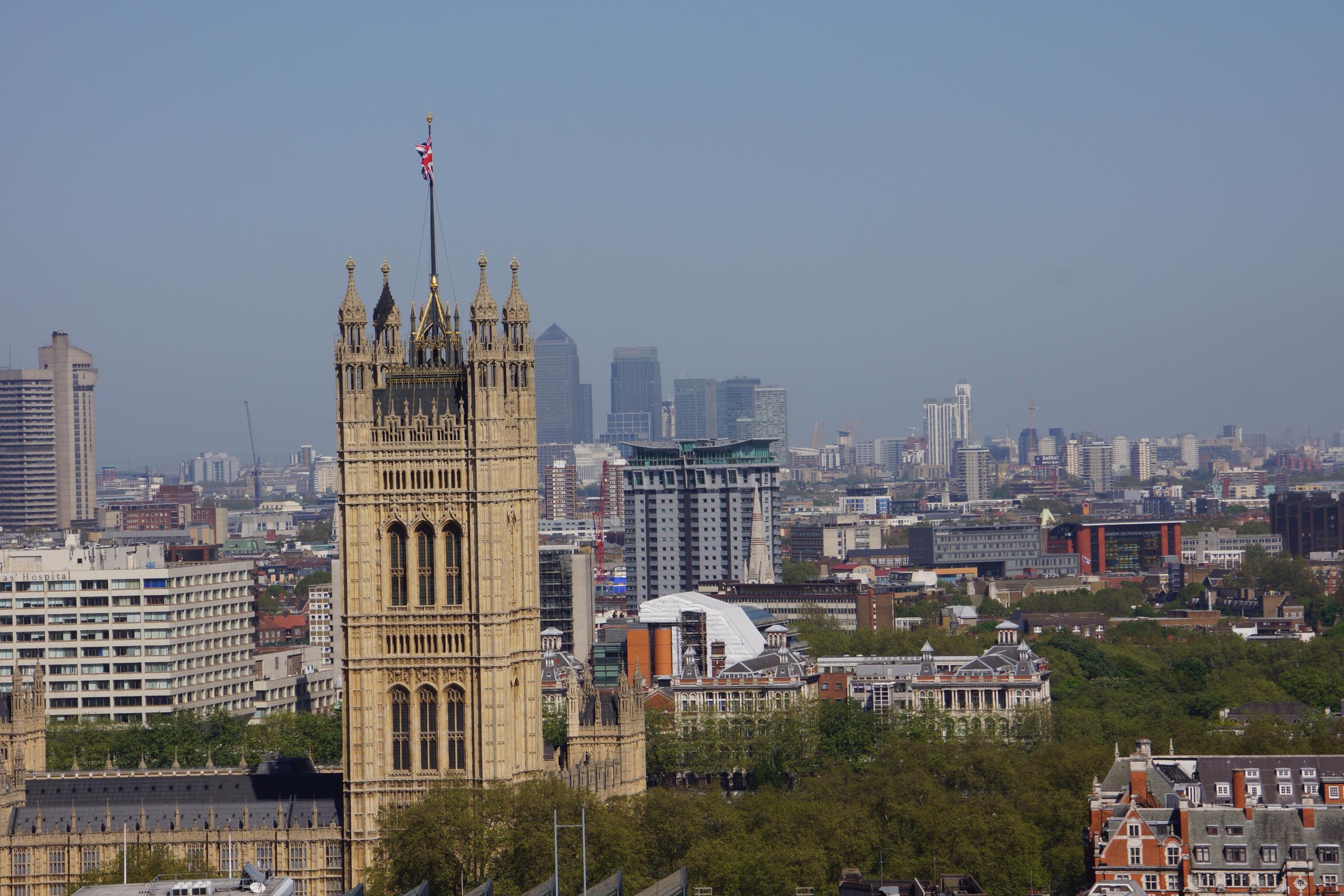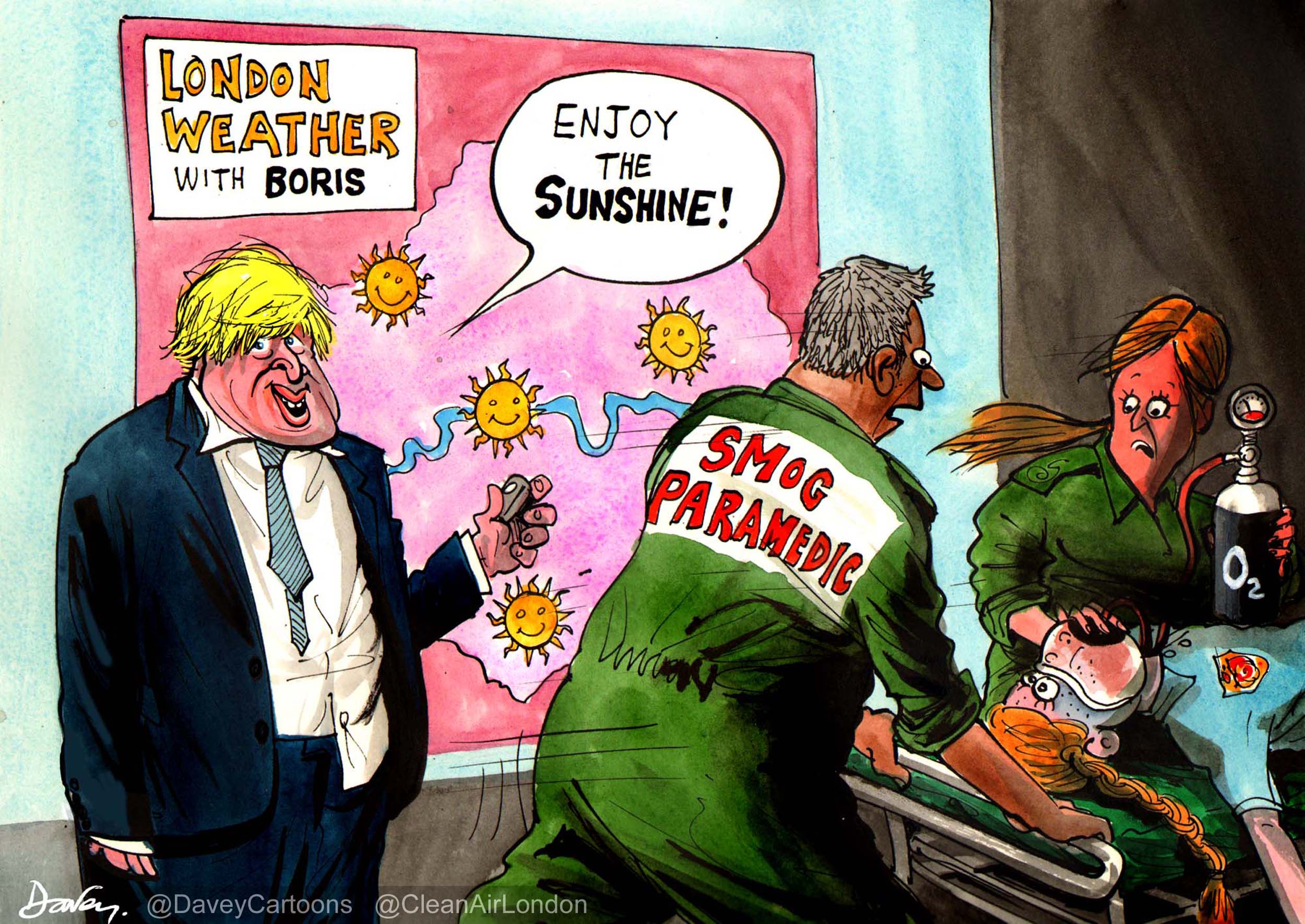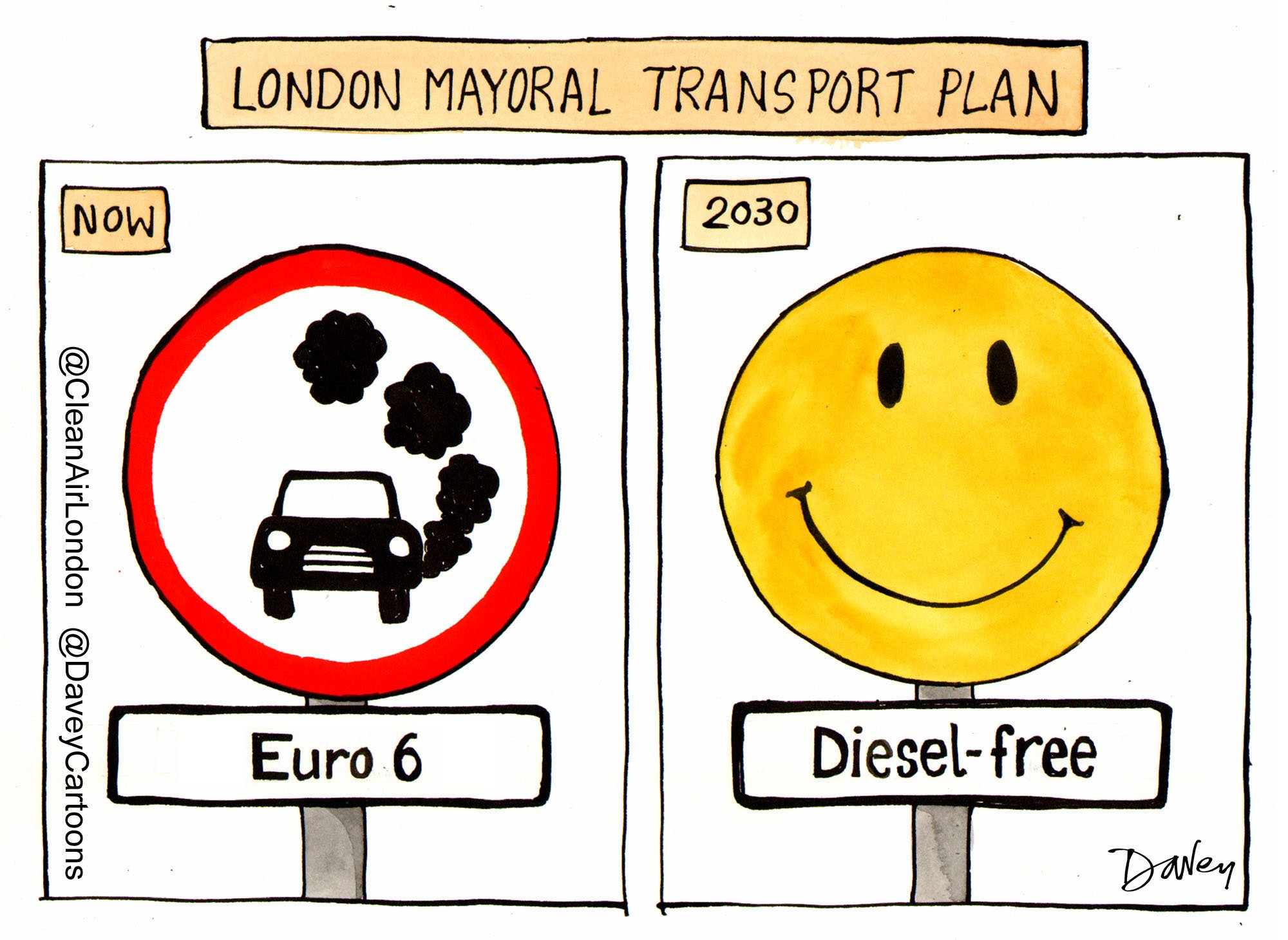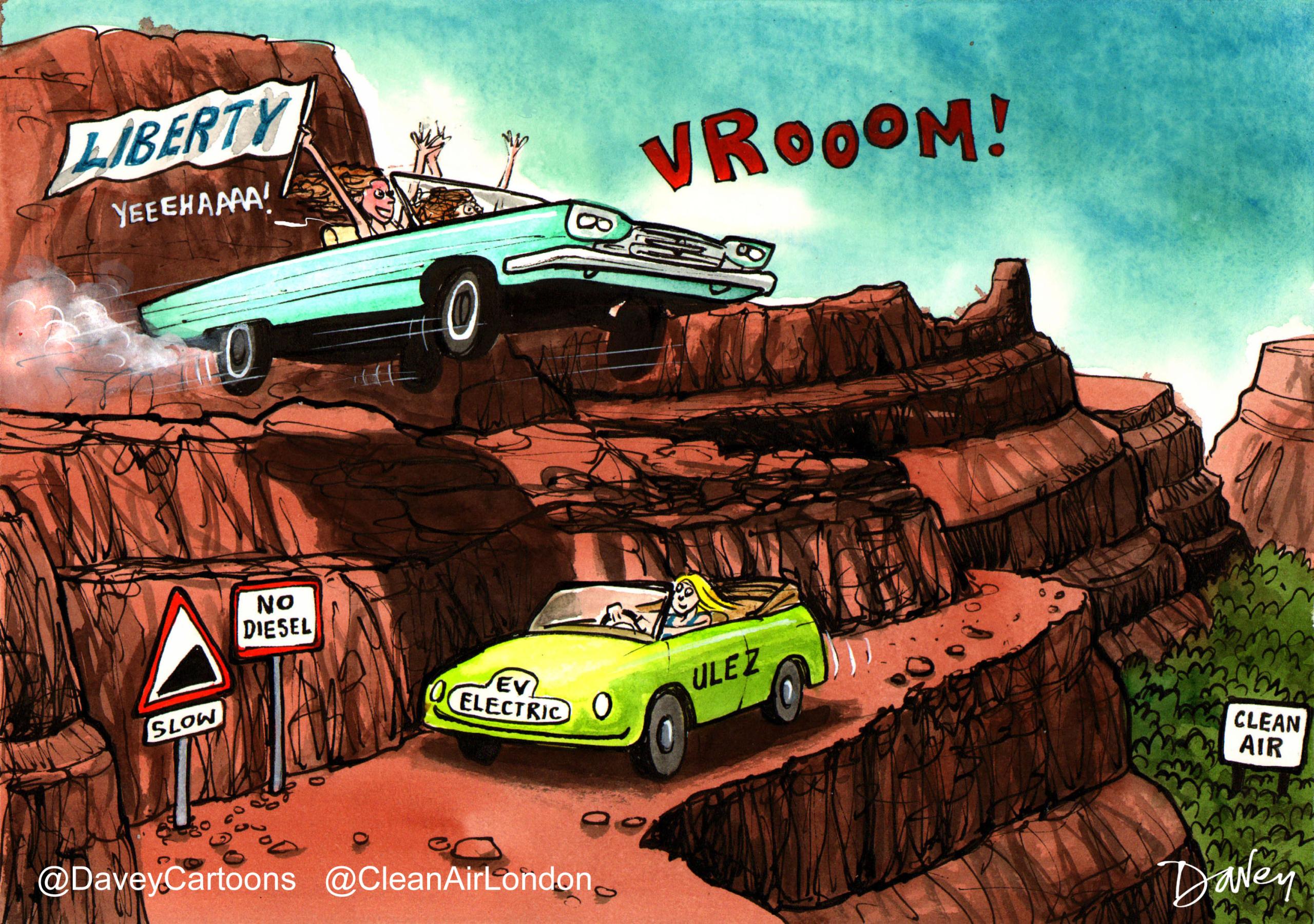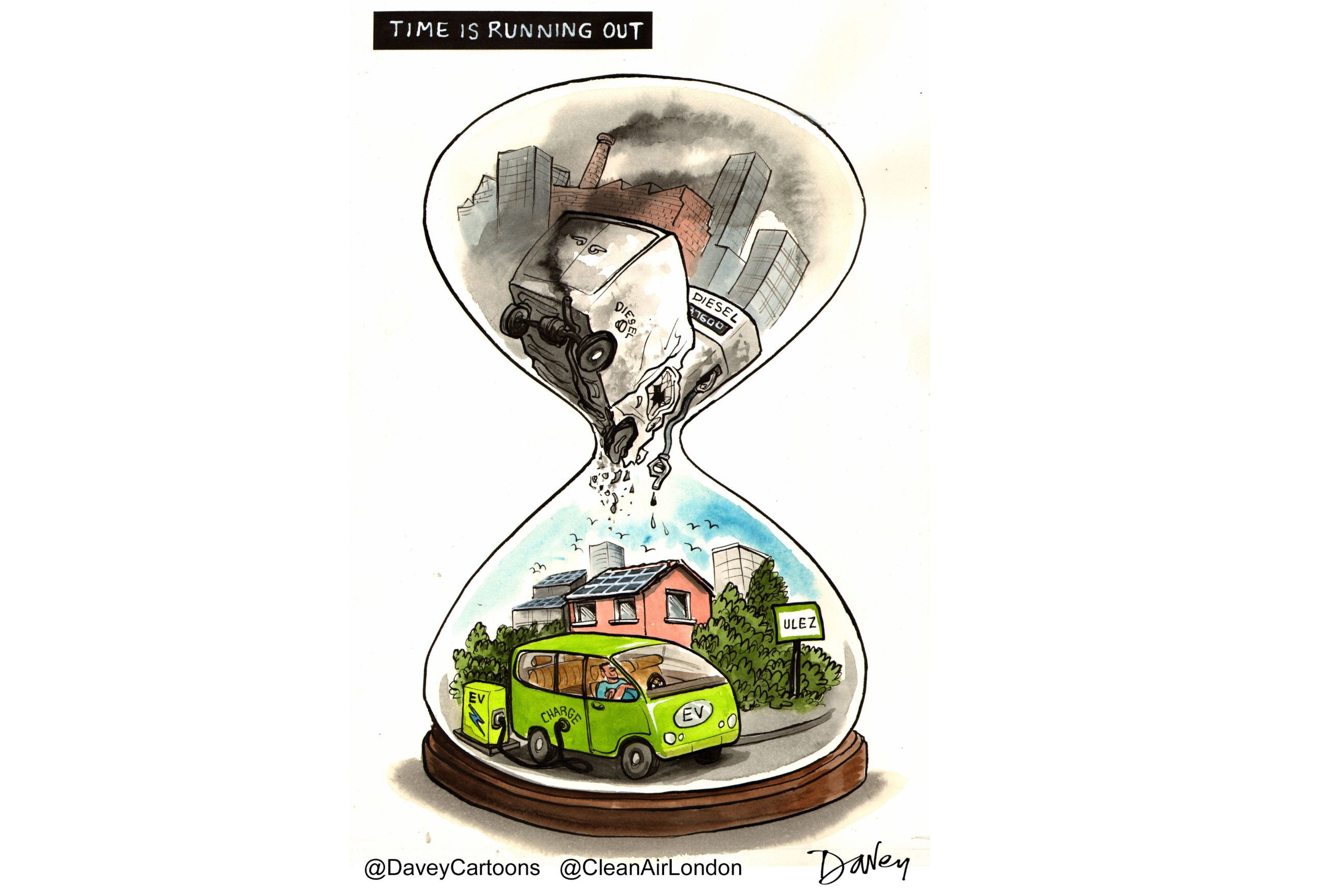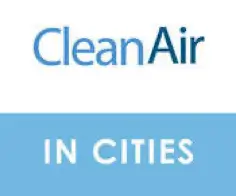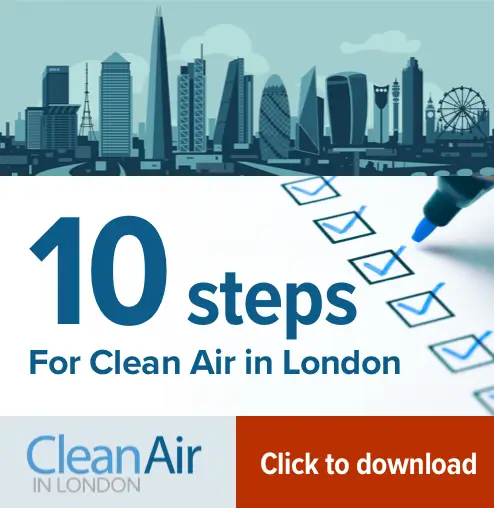Government response to Parliament’s Environmental Audit Committee Report into Air Quality shows it is in a muddle. Ministers think they can choose when they comply with public health laws
‘Government intends to comply with Community law and to avoid infraction and any fines that could result.’ ‘Coalition agreement includes the commitment to work towards full compliance with EU air quality standards.’ Which is it – comply now or comply never?
Last ditch desperate effort by Government to obtain time extension until 2011 to comply with PM10 limit values. But all it offers is more ‘work in progress’ (again); there’s nothing new or tangible
Will Government delegate authority and resources to the Mayor and local authorities along with responsibility? Or is ‘Big Society’ about cost-cutting at the centre and passing the buck?
The Government has published its response to the House of Commons’ Environmental Audit Committee (EAC) Report on Air Quality in the UK that was published on 22 March 2010. The Government response can be seen at:
http://www.official-documents.gov.uk/document/cm79/7966/7966.pdf
Full details of the EAC’s inquiry into Air Quality in the UK can be seen at:
http://www.publications.parliament.uk/pa/cm200910/cmselect/cmenvaud/229/22902.htm
Quotes:
Commenting on the Government response, Simon Birkett, Founder and Director of Clean Air in London (CAL), said:
“The Government is in a real muddle over its duty to comply with health-based air quality laws. It says ‘Government intends to comply with Community law and to avoid infraction and any fines that could result’ (para 42) but earlier says the ‘Coalition Agreement includes the commitment to work towards full compliance with EU air quality standards’ (para 3). Which is it – comply now or comply never? Why has the Prime Minister of the ‘greenest government ever’ still not ‘gripped’ this problem?
“This response looks part of a last ditch desperate effort by the Government to persuade the European Commission to allow it a time extension until 2011 to comply with the daily legal standard for dangerous airborne particles (PM10). Surely the Commission won’t be persuaded: yet again we are told there is ‘work in progress’ but there is still nothing new or tangible from the Government.
“Clean Air in London urges the European Commission to waste no time in escalating legal action against the UK for breaching health-based laws for PM10 and NO2 since January 2005 and 2010 respectively.”
Analysis of the Government response
Despite an appalling lack of clarity and results, after more than six months in Government, it seems something may, at last, be happening within Government. We are told:
1. Public health
- ‘As part of its ongoing work to calculate the overall impact of long-term exposure to PM2.5 on mortality, COMEAP will examine different ways of expressing risks and impacts and will make provisional recommendations by the end of 2010.’ Para 17
- ‘The Government will also shortly be setting out a radical new approach to public health in a white paper focused on protecting the public from health threats such as environmental hazards, improving the healthy life expectancy of the population, and improving the health of the poor fastest. Local Government will be given powers and dedicated resources to make a major impact on people’s health and wellbeing.’ Para 56
- ‘Government will keep under review emerging evidence on the health impacts of coarse particulate from brake, tyre and road wear.’ Para 60
BUT: “When will the Government publish official: local [and national] estimates of premature deaths attributable to long-term exposure to PM2.5; and guidance on the careful interpretation of the numbers (as 89% and 93% of people respectively wanted at a recent conference)?”
2. Focus on cost effective compliance with deadlines
- ‘Government departments have developed a new approach specifically for use when there are breaches of environmental limits.’ ‘This will involve using a Marginal Abatement Cost Curve to assess a range of technologies on a cost effectiveness basis.’ ‘This represents the first application of such an approach [by the UK government].’ Paras 24 and 25
- ‘Government is now in the process of procuring further research to investigate a consistent framework for valuation of ecosystems with a view to work being completed in spring 2011.’ Paras 38 and 39
BUT: “What about the lessons of yester-year? Research for Defra’s Air Quality Strategy 2007 showed the benefits of policies in the road transport sector and electricity generating sector have exceeded costs by up to a factor of 24. And guess what: the costs tended to be over-estimated and the benefits underestimated. The more time the Government wastes, the longer it will take to deliver these huge benefits.”
BUT: “Of course money is tight. But it’s going to get a lot tighter if we don’t spend what we have wisely and end up with massive costs for failing to comply with environmental and health limits.”
3. Mayor and local authorities to be given larger roles
- ‘The Mayor of London has responsibility for air quality in London (along with London boroughs) and must prepare an air quality strategy for London.’ Para 10
- ‘In creating a framework of greater freedom for local councils, the need to maintain minimum environmental standards in air quality remains.’ Para 21
- ‘Government will also encourage local authorities to communicate more strongly to local audiences the health impacts of air pollution and the action that individuals can take to reduce it at a local level, for example through transport choices.’ Para 47
- ‘Government agrees that local authorities are key to improving air quality and would like to see them together with local communities to continue to play a strong role on local air quality.’ Para 64
- ‘Government intends to provide the appropriate enabling framework for local management of air quality based on local circumstances.’ Para 72
BUT: “This is another Government muddle. Who’s in charge? The Government implies the Mayor and London boroughs have full responsibility for complying with health-based air quality laws but a letter from Defra to CAL dated 20 July 2010 admits ‘the Secretary of State has overall responsibility for compliance with EU air quality limits’ (attached). Without clear responsibility and matching authority and resources at every level of Government this muddle is going to get worse.”
BUT: “Will the Government delegate authority and resources to the Mayor and local authorities along with responsibility? Or is the ‘Big Society’ about cost cutting at the centre and passing the buck?”
4. Transport: Problems and solutions
- ‘Road transport is often the most significant factor in determining levels of NO2 pollution in towns and cities, accounting for as much as 70% to 80% of concentrations of NO2 in some hotspots.’ Para 8
- ‘We are looking at all options for how to further reduce emissions from transport.’ Para 57
- ‘Defra is also working with DfT to investigate measures which would reduce harmful emissions from HGV’s and buses in particular.’ Para 58
- ‘Defra is working with local authority delivery partners and with the DfT to investigate the Committee’s recommendation to develop a national framework for low emission zones (LEZs)’. Para 68
BUT: “Germany had some 40 inner city LEZs in place by the end of 2009 and Berlin says it is ‘the most effective single measure’ to improve air quality in the city. Why is the UK still dithering when it should be learning from Germany? It is simple: we need to ban pre-Euro 4 diesel vehicles (and the oldest petrol vehicles) from the most polluted parts of our cities and tighten the LEZ standards to Euro 6 as soon as possible. Yet again, the UK is paralysed by analysis and its own ‘gold plating’.”
5. Building public understanding of poor air quality
- ‘Government very much agrees that more needs to be done on communication of health impacts. It is important to make clear the benefits of improving air quality to the public and better communication of this is needed.’ Para 18
- ‘The Government agrees that it is important not only to make it easier for people to understand how they can reduce their own exposure to air pollution but also to make clear they can reduce their contribution to emissions of dangerous pollutants including through personal or business choices made on transport and energy use. This would improve their own and other people’s health.’ Para 43
- ‘A research report into the consumer response to the air quality banding systems will be published in spring 2011.’ Para 43
- ‘The DfT will review the content of the Vehicle Certification Agency’s New Car Fuel Consumption and Emissions Figures booklet and website.’ Para 43
- ‘It should be noted that all communication activity will need to take account of spending constraints, including for example, the limitations on national campaigning activity announced by the Chancellor on 22 June.’ Para 48
BUT: “We need new health alert bandings that warn people about short and long-term exposure to the range of air pollutants where they live (and work) (given the long-term impacts are much greater than the short-term impacts) and align with the legal framework where it is tighter.”
BUT: “The Government is being penny wise, pound foolish if it bans spending on a major national media campaign to build public understanding of poor air quality with a focus on mitigation and adaptation. Behavioural change typically results in savings not costs whereas the remaining technology solutions are requiring greater and greater cost to achieve smaller and smaller benefits.”
EAC urged to launch urgent new inquiry into air quality
Simon Birkett said: “The overwhelming impression created by the Government’s response to the excellent EAC Report on Air Quality in the UK is that the whole of Government is still in a muddle about how and when it will comply fully with its current legal and moral duties to protect members of the public.
“Clean Air in London urges the EAC to look again urgently at air quality with a major review over the spring and summer of 2011”. This urgent second inquiry should consider the:
i. UK’s success or failure complying in full with the PM10 limit values including the role of the Mayor of London;
ii. UK’s ongoing failure to comply with the NO2 limit values (i.e. since 1 January 2010) and the maximum margin of tolerance that would apply if the UK succeeds in obtaining a time extension;
iii. UK’s consultation on its application for a time extension to comply with NO2 limit values;
iv. UK’s progress in complying with legal obligations for PM2.5 and other harmful air pollutants;
v. UK’s progress in complying with its wider air pollution obligations e.g. the National Emissions Ceilings Directive, the Gothenburg Protocol and related legislation;
vi. need to update UK legislation to align efforts to comply with EU air quality obligations;
vii. contribution by the Prime Minister, DECC, DCLG, DH, HMT and BIS together with Defra and DfT to improving air quality; and
6. Government’s success or failure in communicating the full health impact of poor air quality to members of the public by the time of the second inquiry including the actions people can take to mitigate air pollution and adapt to minimise its effects.

